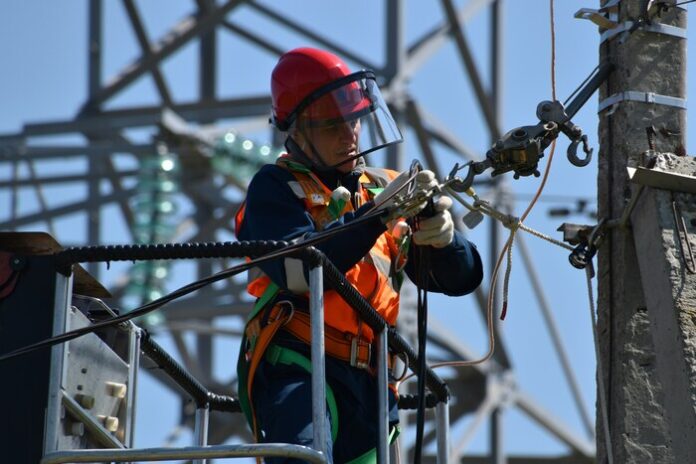Introduction
In recent years, there has been a noticeable shift in perception about the necessity of traditional higher education. With rising tuition costs and the growing demand for skilled labor, many recognize the value and importance of trade professions jobs in the current economy. Trades offer lucrative and stable career opportunities and essential services that keep our society functioning smoothly. This post will explore the top five best trades to pursue without a traditional college degree, highlighting the benefits, requirements, and potential career paths associated with each.
Electrician

Nature of Work: Electricians are responsible for installing, maintaining, and repairing electrical systems in various settings, including residential homes, commercial buildings, and industrial facilities. Their work involves reading blueprints, understanding electrical codes, and using various hand and power tools. Electricians must be adept at troubleshooting problems and making necessary repairs, ensuring that electrical systems are safe and up to code.
Education & Certification Requirements: To become an electrician, one typically needs to complete a high school diploma or equivalent, followed by an apprenticeship program. Apprenticeships, which combine on-the-job training with classroom instruction, usually last four to five years. Some states require electricians to pass a licensing exam, which may include both a written and practical component. For more detailed information about certification requirements, visit the National Electrical Contractors Association (NECA).
Benefits: Pursuing a career as an electrician offers numerous advantages, including strong job security and competitive wages. Electricians are in demand nationwide, as nearly every building requires electrical wiring and maintenance. Additionally, electricians can work independently or as part of larger contracting businesses, with the potential for flexible schedules. They can also specialize in renewable energy or advanced electrical systems, further expanding their career prospects.
Plumber

Nature of Work: Plumbers are skilled professionals responsible for installing, repairing, and maintaining plumbing systems, which include pipes, fixtures, and other apparatus necessary for water distribution and waste management. Their work can take place in residential, commercial, and industrial settings. Plumbers interpret blueprints and building specifications to map out plumbing systems and ensure they comply with local, state, and federal codes. They use various tools and techniques to address issues such as clogged drains, leaky pipes, and malfunctioning water heaters.
Education & Certification Requirements: To become a plumber, an individual typically begins with a high school diploma or equivalent. It is followed by enrolling in a plumbing apprenticeship program, which combines paid on-the-job training with classroom instruction and generally lasts four to five years. Some states also require plumbers to be licensed, which may involve passing a written and practical exam. For more detailed information regarding certification and apprenticeship programs, prospective plumbers can visit the Plumbing-Heating-Cooling Contractors Association (PHCC).
Benefits: A career in plumbing offers robust job stability, as plumbers are essential to the maintenance and function of most buildings. Plumbers enjoy competitive wages, with opportunities for overtime and high earning potential in specialized areas such as pipefitting or plumbing design. Also, plumbers can work for established companies or start their own businesses, providing greater control over their schedules and career paths. The demand for skilled plumbers remains strong, particularly with an aging infrastructure requiring regular maintenance and updates.
HVAC Technician
Nature of Work: HVAC (Heating, Ventilation, and Air Conditioning) technicians are responsible for installing, maintaining, and repairing heating, cooling, and ventilation systems in residential, commercial, and industrial settings. Their work ensures that buildings maintain comfortable and safe environments through effective climate control. HVAC technicians diagnose and troubleshoot system issues, perform regular maintenance checks, and replace or upgrade defective components. They must be familiar with various systems, including air conditioners, furnaces, heat pumps, and refrigeration units.
Education & Certification Requirements: To become an HVAC technician, one typically needs a high school diploma or equivalent, followed by a technical training program or an apprenticeship. These programs can be found at community colleges, trade schools, or through union or employer-based training centers, and they usually take between six months to two years to complete. Additionally, HVAC technicians may need to obtain certification from organizations such as the North American Technician Excellence (NATE) or the Environmental Protection Agency (EPA). Some states also require HVAC technicians to pass a licensing exam.
Benefits: Pursuing a career as an HVAC technician offers several advantages, including a high demand for skilled professionals due to the essential nature of climate control systems in buildings. HVAC technicians enjoy solid job security and competitive wages, with opportunities for overtime and advancement into specialized areas such as system design, energy management, or commercial refrigeration. The field also offers the flexibility to work for established companies, contractors or even to start one’s own business, providing various pathways for career growth and development.
Welder

Nature of Work: Welders are highly skilled tradespeople who specialize in joining metals together using high heat and advanced welding techniques. Their work is critical in various industries, including construction, manufacturing, automotive, and shipbuilding. Welders interpret blueprints and technical drawings to understand the specifications and requirements of each project. They use tools like welding torches, arc welders, and plasma cutters to fuse metals like steel, aluminum, and stainless steel. The work can involve both indoor and outdoor environments and often requires the ability to work in challenging conditions, such as confined spaces and high places.
Education & Certification Requirements: To become a welder, an individual typically needs a high school diploma or equivalent, followed by training at a technical school or community college. These programs often offer classroom instruction and hands-on practice in various welding techniques and can last from a few months to two years. Additionally, certification is highly recommended and sometimes required by employers. Certifications can be obtained through organizations such as the American Welding Society (AWS) and the National Center for Construction Education and Research (NCCER), which validate a welder’s skills and knowledge.
Benefits: Welding offers strong job security and competitive wages, driven by the constant demand for skilled welders in numerous sectors. Welders can work for various employers, including construction firms, manufacturing plants, and shipyards, or they can choose to take on freelance projects. The career also provides opportunities for advancement into specialized areas such as underwater welding, robotics, or quality control inspection. Additionally, welding skills are transferable globally, offering the potential for international work experiences and travel.
Automotive Technician

Nature of Work: Automotive technicians are responsible for diagnosing, maintaining, and repairing various vehicle issues, encompassing everything from engine troubles to electrical system problems. They work on cars, trucks, and other types of vehicles, ensuring they operate efficiently and safely. Their tasks include conducting routine inspections and maintenance, using diagnostic tools to identify issues, and performing necessary repairs or replacements of faulty components. Automotive technicians must stay updated with the latest automotive technologies and industry standards to provide effective repair solutions.
Education & Certification Requirements: Becoming an automotive technician requires a high school diploma or equivalent, followed by training through a technical school or community college. These programs often blend classroom instruction and hands-on experience, covering engine repair, brake systems, and electronics. Programs can take anywhere from six months to two years to complete. Additionally, certification from the National Institute for Automotive Service Excellence (ASE) is highly respected in the industry and can enhance job prospects. Some employers may require technicians to hold specific certifications for different vehicle systems or brands.
Benefits: A career as an automotive technician offers substantial job stability due to the ongoing need for vehicle maintenance and repair. Technicians enjoy competitive salaries, with the potential for overtime and bonuses based on performance and specialization. Career advancement opportunities include roles such as master technicians, service managers, or shop owners, providing a clear path for professional growth. Furthermore, the increasing complexity of modern vehicles ensures a steady demand for skilled technicians who can manage advanced diagnostic tools and technologies.
Conclusion
In conclusion, pursuing a career in trade professions offers numerous benefits compared to traditional college pathways. Trades such as HVAC technicians, welders, and automotive technicians provide strong job security, competitive wages, and opportunities for advancement. Moreover, trade careers allow individuals to enter the workforce sooner, often with less educational debt, thanks to shorter training programs and lower tuition costs. These professions also cater to those who prefer hands-on work and are passionate about solving practical problems. If you are considering your future career options, embarking on a trade career can be rewarding and fulfilling, combining financial stability with continuous professional growth.
















